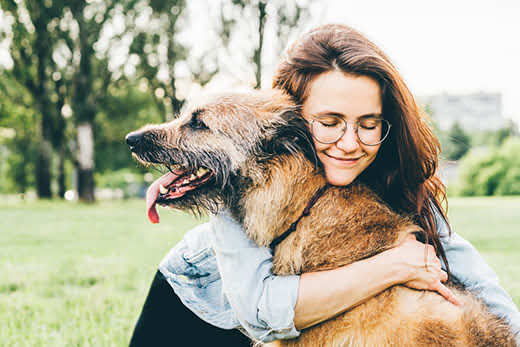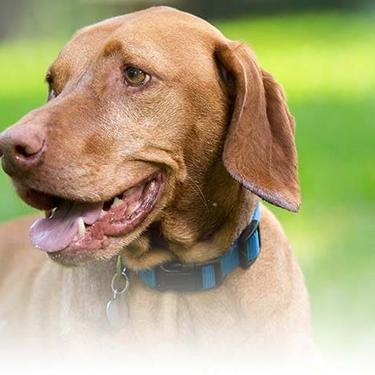
-
Find the right food for your pet
Take this quiz to see which food may be the best for your furry friend.
Find the right food for your pet
Take this quiz to see which food may be the best for your furry friend.
Featured products
 Small & Mini Savory Stew with Chicken & Vegetables Dog Food
Small & Mini Savory Stew with Chicken & Vegetables Dog FoodA delicious complement to the nutrition of Science Diet Small & Mini 7+ dog food
Shop Now Adult 7+ Perfect Digestion Chicken, Whole Oats & Brown Rice Recipe Dog Food
Adult 7+ Perfect Digestion Chicken, Whole Oats & Brown Rice Recipe Dog FoodScience Diet's breakthrough nutrition supports ultimate digestive well-being & healthy microbiome for dogs age 7+
Shop Now Adult Healthy Cuisine Roasted Chicken, Carrots & Spinach Stew Dog Food
Adult Healthy Cuisine Roasted Chicken, Carrots & Spinach Stew Dog FoodDelicious roasted chicken paired with tender vegetables in a succulent stew
Shop NowFeatured products
 Adult 7+ Senior Vitality Chicken & Vegetable Stew Cat Food
Adult 7+ Senior Vitality Chicken & Vegetable Stew Cat FoodImproves Everyday Ability to Get Up & Go
Shop Now Adult Savory Entrée Can Variety Pack Cat Food
Adult Savory Entrée Can Variety Pack Cat FoodPrecisely balanced nutrition with the delicious taste of savory minced chicken to help fuel the energy needs of cats during the prime of their life
Shop Now Adult 7+ Tender Tuna Dinner Cat Food
Adult 7+ Tender Tuna Dinner Cat FoodWith delicious chunks in a decadent gravy
Shop Now -
Dog
- Dog Tips & Articles
-
Health Category
- Weight
- Food & Environmental Sensitivities
- Urinary
- Digestive
- Joint
- Kidney
-
Life Stage
- Puppy Nutrition
- Adult Nutrition
- Senior Nutrition
Cat
- Cat Tips & Articles
-
Health Category
- Weight
- Skin & Food Sensitivities
- Urinary
- Digestive
- Kidney
-
Life Stage
- Kitten Nutrition
- Adult Nutrition
Featured articles
 Does My Pet Hate Me?
Does My Pet Hate Me?Learn tips for bonding with your pet if you've ever thought, 'My dog doesn't like me, or 'Why do I have a standoffish cat?'
Read More Do Dogs and Cats have Belly Buttons?
Do Dogs and Cats have Belly Buttons?Learn whether cats & dogs have belly buttons like humans, what the function is, and if there are any health concerns associated with it.
Read More Why Are Dogs and Cats So Cute?
Why Are Dogs and Cats So Cute?If waggy puppy dog tails and furry kitten yawns make you swoon, you're not alone. Why are cats so cute? And, dogs too! Let's find out!
Read More -


If your dog has recently been diagnosed with cancer, it can be overwhelming. You may be filled with anxiety, sadness, denial, frustration and other emotions. These are all normal reactions. You may also have a lot of questions — to start, how long will your dog live? How long can a dog live with cancer without treatment? Here are the most common cancers in dogs and the treatment options and general life expectancy for each. Remember, your veterinarian is the best resource to discuss treatment options and expected outcomes unique to your pet. We recommend working with your veterinarian if your pet is dealing with this topic as your best resource to improve your pet's care.
How Long Can a Dog Live With Cancer?
The answer to this question is never straightforward. Ultimately, many factors will affect this outcome, including the type of cancer, treatment choices, progression and health at diagnosis. While this answer may vary, it can help to have a framework for understanding what you and your canine companion are up against.
Lymphoma Prognosis
One of the most common cancers in dogs, lymphoma, affects the lymph nodes and can spread to other organs, such as the intestines and skin. Lymphoma has several different forms that range in severity. Life expectancy after diagnosis depends on the type of lymphoma and whether your dog undergoes treatment. Approximately 80% of dogs go into remission after the first month of chemotherapy, and, compared to humans, most dogs enjoy an excellent quality of life while receiving chemotherapy. Dogs with low-grade lymphoma can live years; however, the median survival time is 12 to 14 months for most dogs and six to nine months for dogs with high-grade lymphoma. How long can a dog live with cancer without treatment? When you take treatment out of the equation, the survival time is much shorter.

Mast Cell Tumors Prognosis
Mast cell tumors are the most common skin tumor seen in dogs. They occur as a red, raised bump on the skin. Mast cell tumors are treated with surgery, and it's recommended to follow surgery with chemotherapy and/or radiation, depending on the malignancy and location of the cancer. Additionally, surgically removing low-grade tumors often cures the dog of cancer. If the mast cell cancer has spread to the lymph nodes or if the cancer is considered high-grade malignant, life expectancy after diagnosis and treatment is six to 12 months.
Oral Melanoma Prognosis
Melanoma is cancer of the pigmented cells, and it's the most common tumor seen in the mouth of older dogs. It's considered a malignant tumor when it appears in the mouth and, from there, it can spread to other organs. Treatment includes surgery, chemotherapy and radiation. Without treatment, survival time is two months or less. How long can a dog live with cancer if treated? It depends on the stage of the cancer: dogs who have low-grade oral melanoma (stages 1 through 3) can live more than 18 months, while dogs with high-grade (stage 4) melanoma typically have less than three months.
Osteosarcoma Prognosis
The most common bone cancer in dogs, osteosarcoma is a malignant cancer that spreads to other bones and organs. Prognosis is poor for most dogs who are diagnosed with osteosarcoma, and treatment is aimed at comfort and prolonging life as much as possible. Surgery, radiation and chemotherapy are all available. Without any treatment, the life expectancy for osteosarcoma is less than a month, and it would be extremely painful for your dog. With palliative surgery or radiation therapy, life expectancy after diagnosis and treatment is four months. Survival time increases to six to 12 months when chemotherapy is added to treatment.


Tasty Tips
Mammary Cancer Prognosis
Breast cancer is more common in dogs who haven't been spayed, and it can spread to other organs. Treatment involves surgically removing the tumor and, in many cases, both mammary chains and lymph nodes to prevent spread. Chemotherapy with surgery can extend life expectancy. Blackwell's Veterinary Consult explains that 50% of mammary tumors are malignant, but benign (low-grade) mammary tumors can be cured with complete surgical removal. How long can a dog live with cancer? Dogs with malignant breast cancer can often survive six to 10 months with treatment.
Hemangiosarcoma Prognosis
This cancer affects the lining of blood vessels and is seen in the spleen, liver, heart and skin. Hemangiosarcoma is typically a highly malignant cancer that spreads despite treatment. Surgery and chemotherapy are available. Even with treatment, though, the life expectancy for dogs with hemangiosarcoma is unfortunately short, generally ranging from two to seven months.
Tips for Handling Your Dog's Cancer Diagnosis
If your dog has been diagnosed with cancer, try to remain calm — you'll need your wits about you to make the best decisions for you and your dog. Here are four tips that can help.
Rally Support
When your dog is facing cancer, you need the support of loved ones. Your veterinarian will provide medical support, but your friends, family and a counselor all make up a larger support network. Consider creating a supportive online community through a resource like PrizedPals.
Educate Yourself
Your vet will be a valuable source of guidance and information. By learning everything you can about your dog's diagnosis, you can partner with your veterinarian to be an advocate for the best care for your dog. The Take C.H.A.R.G.E Registry can be an excellent resource to learn more about cancer so you can make the most informed choices possible.
Consult With an Oncologist
While general vets have a lot of experience with cancer, a veterinary oncologist specializes in cancer and will be better equipped to give your dog the gold standard of cancer care. Ask your vet for a referral to a local veterinary oncologist they trust.
Assess Your Dog's Quality of Life
Understanding when it's time to let go can be an emotionally charged and difficult decision. If your dog's condition is terminal, understanding and assessing their quality of life can be useful in knowing when it's time. Lap of Love offers a quality of life assessment tool that can help.
A cancer diagnosis can be scary, but if you stay calm and centered and support yourself, you can maximize the time you have with your dog and make decisions that best support your dog's quality of life.


Dr. Sarah Wooten graduated from UC Davis School of Veterinary Medicine in 2002. A member of the American Society of Veterinary Journalists, Dr. Wooten divides her professional time between small animal practice in Greeley, Colorado, public speaking on associate issues, leadership, and client communication, and writing. She enjoys camping with her family, skiing, SCUBA, and participating in triathlons.
Related products

A delicious complement to the nutrition of Science Diet Small & Mini 7+ dog food

Science Diet's breakthrough nutrition supports ultimate digestive well-being & healthy microbiome for dogs age 7+

Delicious roasted chicken paired with tender vegetables in a succulent stew

Delicious braised beef paired with tender vegetables in a succulent stew
Related articles

Your dog's coat and skin are a big part of your dog's overall health. Ensure you keep your dog's coat healthy, by following these simple tips.

Hill's Science Diet Small & Toy Breed dog foods are designed to meet the nutritional needs for your small dog at every life stage. Learn more here.

Learn about choosing the right food for your mature or older dog, ensuring he receives the correct balance of nutrition.

Large and giant breed puppies have different nutritional needs than other dogs. Learn how to provide the special care they need to grow up big and strong.

Put your dog on a diet without them knowing
Our low calorie formula helps you control your dog's weight. It's packed with high-quality protein for building lean muscles, and made with purposeful ingredients for a flavorful, nutritious meal. Clinically proven antioxidants, Vitamin C+E, help promote a healthy immune system.
Put your dog on a diet without them knowing
Our low calorie formula helps you control your dog's weight. It's packed with high-quality protein for building lean muscles, and made with purposeful ingredients for a flavorful, nutritious meal. Clinically proven antioxidants, Vitamin C+E, help promote a healthy immune system.

